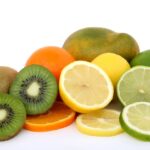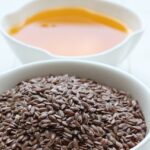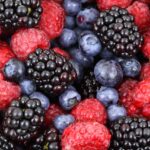Exploring the impact of diet on productivity and energy levels
The brain is constantly working and it never stops functioning, even during sleeping hours 1. This means it requires a continuous supply of fuel, i.e. energy coming from food. Just like cars, the brain works best when it only gets ‘premium fuel’ and hence, what we eat directly impacts the brain’s structure and function.
Optimal cognitive function is a crucial aspect of brain health and wellbeing 2. The brain consumes a tremendous amount of energy relative to the rest of the body, and dietary factors are found to affect multiple brain processes 3. Vitamins and minerals, in particular, have multiple functions within the central nervous system that may result in maintaining brain health and optimal cognitive functioning 4. A growing body of evidence suggests that these so-called ‘neuro-nutrients’ along with eating behaviours in general, could impact the pathogenesis of some neurological disorders, and the cognitive and emotional state of people 4.
Regarding specific food groups and their impact on brain health, the evidence base is scarce; few studies have been conducted on specific food groups either in the general population or within specific age groups 2. Evidence relevant to the effects of legumes, fish, and meat on cognitive function are mainly restricted to specific subcomponents (i.e. nutrients-ingredients within that food group) 2.
Plenty dietary factors have been identified as having direct and indirect effects on cognitive abilities 3:
Overall, research has pointed out that the best ‘brain foods’ may be the same ones that protect the heart and blood vessels9. According to Harvard Health Publishing of the Harvard Medical School, amongst foods linked to better ‘brain power’ are the following9:
Green, leafy vegetables
Fatty fish
Tea and coffee
References
[1]
Nutritional psychiatry: Your brain on food. Harvard T.H. CHAN. School of Public Health. [Available from: https://www.health.harvard.edu/blog/nutritional-psychiatry-your-brain-on-food-201511168626 ] (Accessed: November 10, 2023).
[2]
Dalile B, Kim C, Challinor A, Geurts L, Gibney ER, Galdos MV, et al. The EAT–Lancet reference diet and cognitive function across the life course. The Lancet Planetary Health. 2022;6(9):e749-e59.
[3]
Gómez-Pinilla F. Brain foods: the effects of nutrients on brain function. Nat Rev Neurosci. 2008;9(7):568-78.
[4]
Rutjes AW, Denton DA, Di Nisio M, Chong LY, Abraham RP, Al-Assaf AS, et al. Vitamin and mineral supplementation for maintaining cognitive function in cognitively healthy people in mid and late life. Cochrane Database Syst Rev. 2018;12(12):Cd011906.
[5]
Omega-3 Fatty Acids: An Essential Contribution. Harvard T.H. CHAN. School of Public Health. [Available from: https://www.hsph.harvard.edu/nutritionsource/what-should-you-eat/fats-and-cholesterol/types-of-fat/omega-3-fats/ ] (Accessed: November 7, 2023).
[6]
The Nutrition Source. Folate (Folic Acid) – Vitamin B9. Harvard T.H. CHAN. School of Public Health. [Available from: https://www.hsph.harvard.edu/nutritionsource/folic-acid/ ] (Accessed: November 8, 2023).
[7]
Antioxidants. Harvard T.H. CHAN. School of Public Health. [Available from: https://www.hsph.harvard.edu/nutritionsource/antioxidants/#the%20bottom%20line%20on%20antioxidants ] (Accessed: November 7, 2023).
[8]
Vitamin E. Harvard T.H. CHAN. School of Public Health. [Available from: https://www.hsph.harvard.edu/nutritionsource/vitamin-e/ (Accessed: November 9, 2023).
[9]
Foods linked to better brainpower. Harvard Health Publishing. [Available from: https://www.health.harvard.edu/healthbeat/foods-linked-to-better-brainpower ] (Accessed: November 6, 2023).








